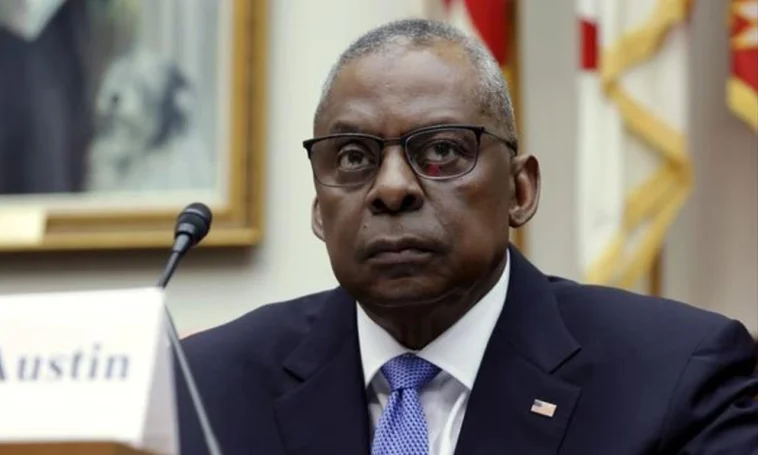The acknowledgment of oversight and the subsequent scrutiny from lawmakers shed light on the intricate dynamics of leadership, communication protocols, and the expectations placed on high-ranking officials within the U.S. government.
Austin’s admission of responsibility for keeping the White House uninformed during his cancer diagnosis and subsequent medical treatment underscored the gravity of the situation.
As the head of the Department of Defence, Austin occupies a pivotal position in the national security apparatus, wielding immense responsibility over the nation’s military affairs. His acknowledgment that the handling of his health situation was mishandled and his acceptance of full responsibility are emblematic of the accountability expected from leaders entrusted with such critical roles.
“Again, we did not handle this right. And I did not handle this right. And as you know, I have apologized … including directly to the president. And I take full responsibility,” he said.
However, the acknowledgment alone did not assuage the concerns of some lawmakers, particularly Republicans, who sought clarity on the decision-making process that led to the lack of communication with the White House. Despite a Pentagon review clearing Austin and his staff of any wrongdoing, questions lingered about the chain of command and the failure to promptly notify senior leaders about Austin’s hospitalization.
The Pentagon’s review attributed the lapse in communication to concerns about medical privacy and a lack of established protocols for reporting such events. While these factors may offer context to the situation, they do not fully absolve the Department of Defence leadership from the responsibility of ensuring transparent communication, especially regarding matters that could impact national security and continuity of operations.
Austin’s explanation that he chose personal leave upon his cancer diagnosis and surgery, with his deputy assuming official responsibilities, highlights the complexities of leadership transitions during times of personal crisis. While the transfer of authority may have been executed internally, the absence of timely notification to senior leaders, including the White House, raises legitimate concerns about transparency and accountability within the chain of command.
Republicans, in particular, expressed frustration over what they perceived as a lack of transparency surrounding Austin’s health status and its implications for junior service members. They questioned the potential disciplinary actions that lower-ranking personnel would face for similar lapses in communication and duty reporting.
Moreover, concerns were raised about President Biden’s apparent detachment from Austin’s absence, prompting speculation about the nature of the relationship between the commander-in-chief and his defence secretary.
Austin’s assertion that the president’s lack of direct communication during his absence is not uncommon for defence secretaries underscores the nuances of executive interactions within the highest levels of government.
While it may reflect established norms and procedures within the executive branch, it also raises questions about the level of engagement and oversight expected from the commander-in-chief during critical periods.
On the other hand, Democrats viewed the focus on Austin’s mistake as a distraction from pressing national security priorities and legislative imperatives. They emphasized the need for Congress to address issues such as passing a budget and providing aid packages for allies like Ukraine and Israel, highlighting the broader challenges facing lawmakers in fulfilling their constitutional duties.




One Comment
Leave a ReplyOne Ping
Pingback:"Lloyd Austin Becomes Latest Target of Protesters' Manure Dump: 'You Ain't Seen Nothing Yet'" - Hard Knock News